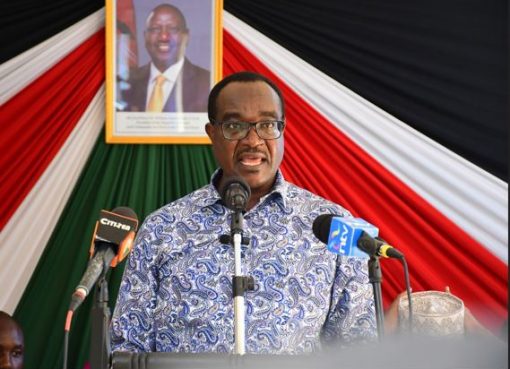A Kenyan lawmaker and his Ugandan counterpart have called for a regional-level debate over adoption of Genetically Modified Organisms (GMOs) in the East African Community (EAC).
Teso North MP Oku Kaunya (Kenya) and Kasilo County MP Elijah Okupa (Uganda) opined that the debate on whether GMOs should be adopted or not must take a regional perspective since the partner states are interdependent with agricultural products being their main exports.
They insisted that all the EAC partner states including Kenya, Uganda, Tanzania, Rwanda, Burundi and South Sudan need to engage before the GMOS are reintroduced into the region.
The MPs made the call on Sunday during a fundraiser in aid of completion of a diocesan project at Amagoro Anglican Church of Kenya offices in Teso North constituency.
Kaunya appealed to President William Ruto to allow a wider consultation before reintroducing genetically modified products which are associated to ill-health into the country.
He said: “The truth is that genetically modified food had not been approved for use in Kenya until recently. I urge the president to stop the approval of GMO until Kenyans themselves agree”.
“Let scientists look into it and assess the effects GMO will bring to Kenyans. Nowadays there is a lot of food being sold especially in the Western world which when consumed makes people fat like pigs and you wonder what is going on,” he said.
“All this is happening because we have started thinking that we are clever than God. We cannot live like this. Let us rethink of where we have come from and continue consuming traditional foodstuffs,” he added.
Okupa on his part said lifting the ban on genetically modified products in one country in a region with porous borders is risky to residents of other partner states.
“The issue of GMO has been a challenge back in Uganda. As Parliament we have tried to make laws to protect and guard our people from unnecessary infringement. As MPs we can share notes and see how we can be able to better this debate and help the East African Community regarding the matter,” he said.
“We belong to the East African Community. We should be able as the EAC to have a common position and I think that way, if we moved as a region, we will make more informed decisions on this matter rather than approach the same as individual countries,” he added.
In early October, the Kenyan Government lifted a ten-year ban on genetically modified crops which was imposed in 2012 in a bid to increase food and animal feed production in the country.
According to a dispatch sent to the media by Kenya’s cabinet, the decision was guided by recommendations of a task force on genetically modified foods and food safety and guidelines of the National Bio-safety Authority formed in 2013.
The move elicited mixed reactions with those against citing safety issues to both human health and the environment.
In the neighbouring Uganda, attempts to allow GMOs in the country in 2017 through parliament failed after President Yoweri Museveni declined to sign into law the National Biotechnology and Biosafety Bill, 2012.
The bill sought to provide a regulatory framework that facilitates the safe development and application of biotechnology, research, development and release of genetically modified organisms.
By Melechezedeck Ejakait and Ann Njuguna




